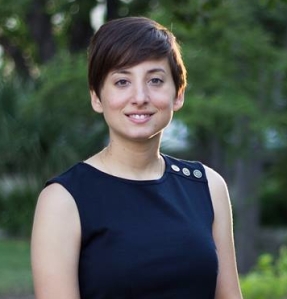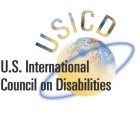Inclusion in Electoral Systems
By Lisa Guerra
Every human being has a right to vote.
We live in a world where voting, in general, is viewed as privilege, not a fundamental right.
Why a privilege? Governments (whether democratic or constitutional monarchies) pick and choose who can and cannot exercise their civic duties for various reasons. Some excluded populations are stripped of their right to vote because of their roles in society–roles that are viewed as “inactive,” “not contributing,” and/or “incapable.”
Since my internship started with the International Foundation for Electoral Systems (IFES) nearly two months ago, I immersed myself into the subject of political participation and people with disabilities on the international level. People with disabilities face oppression in the electoral process in many ways. While this blog post will discuss about the general population of the disability community, it is important to note that there are people who also face double or multiple oppressions due to their gender, sexual orientation, ethnicity, and others. For example, women with disabilities have lower percentage of vote turnout compared to men with disabilities.
A tiny number of countries have eliminated discrimination in the electoral process against people with disabilities in their constitutions and laws. Within these few countries, an even smaller number of countries provide inclusive programs focusing on accessibility and anti-discrimination regulations for their citizens with disabilities.
Why are people with disabilities still unable to vote in most areas of the world? Or otherwise disenfranchised of their right to vote?
Ignorance and outdated legalese on binding documents are the usual factors. Disability is associated with stigma and this leads many to hold the outdated belief of people with disabilities as “second-class” citizens who are incapable of contributing to their society and unable to have active roles in any aspect of life.
Legal limitations in the electoral process is one of many barriers faced by the disability community. In many cases, a person with intellectual disabilities is usually automatically excluded just because the constitution declared their disability causes incompetency to make a decision. If a person is under guardianship, they are excluded as well because their competency is questioned. There are laws that are construed to exclude people who are homeless from voting and many have psychosocial or other disabilities.
Even if people with disabilities have no legal limitations to vote, they still face barriers. Accessibility standards in the polling stations and ballots, and the right to secrecy, are still poorly enforced in many areas of the world due to insufficient training and lack of understanding of rights on the part of electoral officers. In some countries, an electoral official has the right to challenge and/or prevent a voter from participating, due to their own observation if they believe the voter is incompetent. This is blatant discrimination–but what is worse is this that is often legal as well. Also, people who are blind need accessible ballots, but they could be turned away due to inaccessible polling stations. Voters who use wheelchairs cannot access the facilities because there are no ramps. The problem is that there is still a great need for funds and serious commitments to provide quality accessibility trainings for electoral officers and for the implementation and enforcement of anti-discrimination laws.
With or without disabilities, citizens have the right to vote without any limitations. A fundamental right should not be taken away because that person is born with (or acquires) an identity associated with traditional stigma. Ableism is a harmful tool of oppression that many uses to exclude disability from participating in political life. The disability community lacks direct political power (not many enter high-functioning positions in politics) and this causes intentional (or unintentional) oppression from the majority to continue. How are we going to create a better inclusive society for the disability community if we don’t include them in every single aspect of life?
It is time for us to change our thinking and actions and give our peers their rights.
Lisa Guerra is one of the participants in the 2015 USICD Youth in International Development and Foreign Affairs internship program. She and other USICD program interns are writing a series of blog posts about their experiences with USICD’s internship program, to be posted at this blog. USICD coordinates the internship program, which brings a cohort of students and recent graduates with disabilities to Washington, DC, each summer to complete internships at various international organizations in the Washington, DC, area. Lisa Guerra completed her USICD program internship at the International Foundation for Electoral Systems (IFES). Learn more about USICD’s internship program at http://usicd.org/template/page.cfm?id=257. Read Lisa Guerra’s, and the biographies of other interns in the summer 2015 program, at http://www.usicd.org/index.cfm/news_usicd-mitsubishi-interns-biographies. The views and opinions expressed at this blog are those of the author and do not necessarily reflect the position of USICD or IFES.

